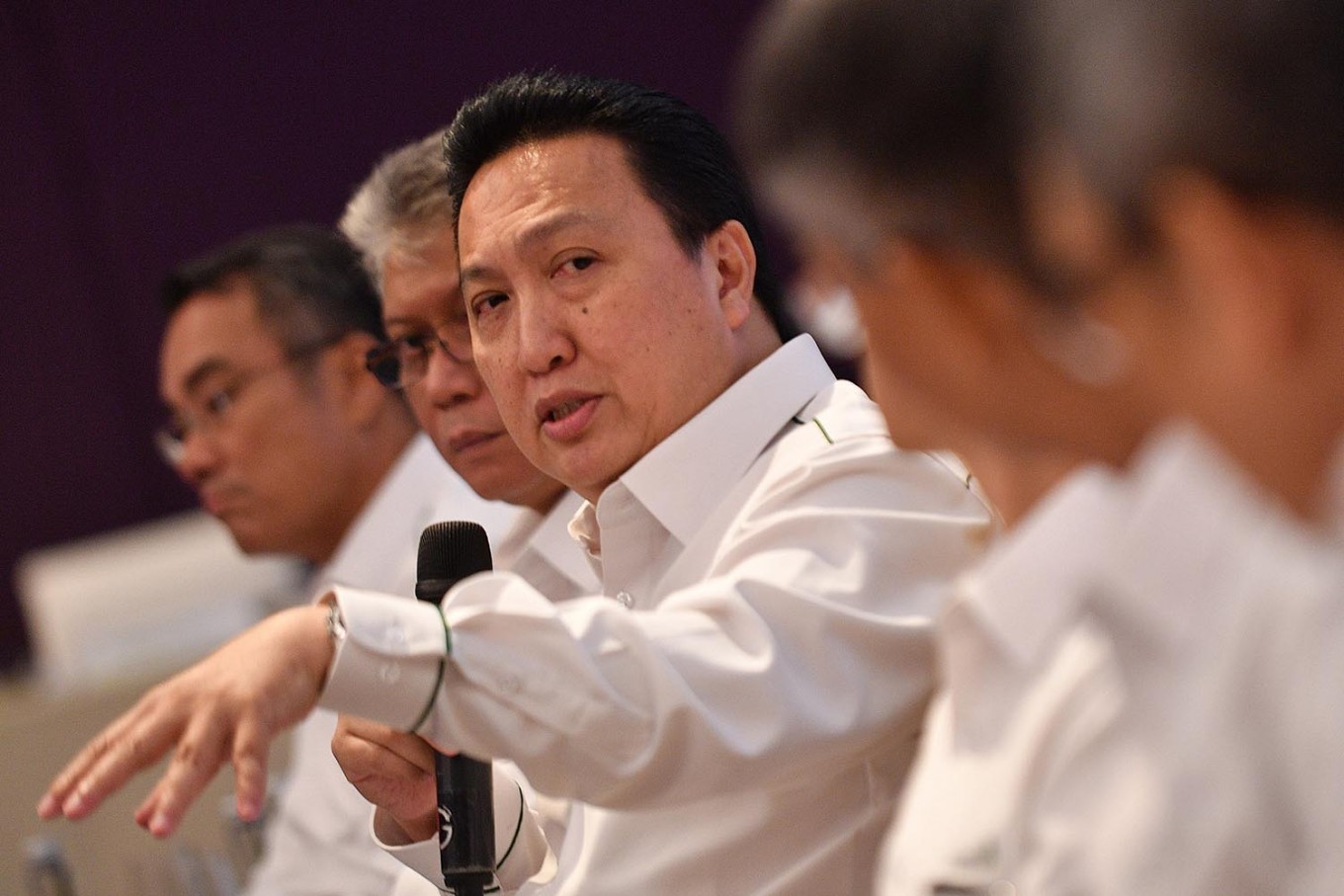Popular Reads
Top Results
Can't find what you're looking for?
View all search resultsPopular Reads
Top Results
Can't find what you're looking for?
View all search resultsAdaro chief questions math behind coal gasification projects
Change text size
Gift Premium Articles
to Anyone
G
aribaldi Thohir, president director of coal miner PT Adaro Energy Indonesia, has questioned the economic viability of projects to convert coal into dimethyl ether (DME) in Indonesia, one of the government’s many proposed downstream coal projects.
Garibaldi raised the doubts when asked about the substitute for natural gas at a media briefing on Thursday but said the firm would continue exploring possibilities and opportunities in the downstream coal industry.
"I don't understand how the math would [make DME projects feasible]. For example, if coal prices rose significantly, the calculation would not make sense," Garibaldi told reporters.
Read also: Air Products’ exit deals blow to RI’s downstream coal dreams
Indonesia has faced a series setbacks in realizing its goal of developing downstream coal industries, suffering a major blow with United States-based chemical company Air Products’ decision to pull out of all such projects in Indonesia.
Prior to its exit, Air Products had been working on several gasification projects, one to convert coal into DME and another to convert it into ethanol. The projects involved state-owned mining firm PT Bukit Asam (PTBA) and subsidiaries of PT Bumi Resources.
Experts say filling the hole that Air Products left would be difficult, with Belgium-based intelligence provider Energy Monitor writing in a 2022 report that Indonesia was unlikely to realize its large-scale gasification ambitions.
"Even the initiator finally backed off, right?" Garibaldi said, referring to the US company.
Air Products had been expected to invest at least US$2.3 billion in the coal-to-DME gasification project alone, which would have been the largest coal gasification investment in Indonesia.
Garibaldi, whose younger brother is State-Owned Enterprises Minister Erick Thohir, noted that DME was not the only option for coal downstreaming. He gave an example of processing coal into petrochemicals, which could result in many derivatives.
He said Adaro was exploring downtreaming schemes that could add more value and were more feasible.
"If a plan is [prohibitively] hard to execute, it is useless and just serves as rhetoric. For us, we want to do it quietly, but [we make sure] it's done," Garibaldi said.
Read also: RI looks to S. Africa, EU after Air Products exits downstream coal projects
Last month, Coordinating Economic Minister Airlangga Hartarto, in an interview with The Jakarta Post, noted similar issues with coal-to-DME plans but said the government would press on nevertheless.
He said high coal prices could discourage firms from seriously considering downstream projects, especially at times when coal was more costly than the natural gas it was supposed to replace.
Furthermore, such projects would require huge amounts of capital, he said, which would make it harder for the government to convince the private sector to buy in.
"Therefore, we should have bigger incentives. If not, nobody will be able to realize [the proposed projects]. Even while some have reached the groundbreaking [stage], if the economic value is not met, it will be difficult," Airlangga told the Post.










